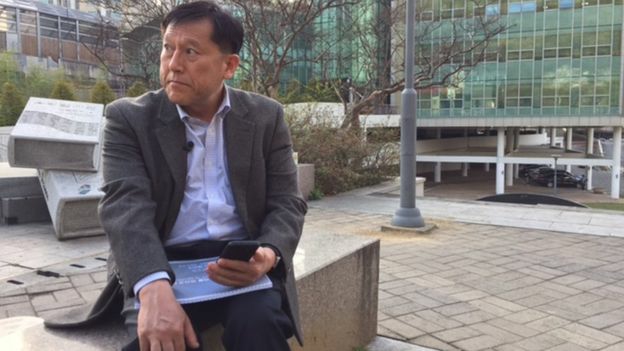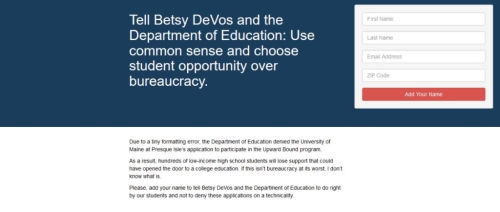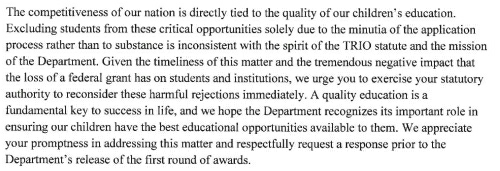President Trump's Coast Guard Speech
 President Trump gave the commencement speech at the Coast Guard Academy. The theme was perseverance, and he gave the new graduates good advice:
President Trump gave the commencement speech at the Coast Guard Academy. The theme was perseverance, and he gave the new graduates good advice:
Now, I want to take this opportunity to give you some advice. Over the course of your life, you will find that things are not always fair. You will find that things happen to you that you do not deserve and that are not always warranted, but you have to put your head down and fight, fight, fight. Never, ever, ever give up. Things will work out just fine.
Apparently, he then went off script:
Look at the way I've been treated lately. Especially by the media. No politician in history - and I say this with great surety - has been treated worse or more unfairly. You can't let them get you down. You can't let the critics and the naysayers get in the way of your dreams. I guess that's why, thank you, I guess that's why we won.
The speech came after a difficult week for the president: he fired FBI Director James Comey, who questioned the president's integrity in return.
Of course, reports about President Trump's speech vary according to political alignment. Conservative outlets such as Rush Limbaugh and Fox News applaud his calling out the media. Limbaugh wrote, "Media Livid," and Fox's headline was "Trump Takes on Media." Compare those headlines with CNN's: "Trump's Pity Party at Coast Guard Academy Was Shameful."
Discussion:
- What's your view of the speech? Do you agree more with the conservative media outlets or the more liberal CNN? How does your opinion align with your own political views?
- Take the other side of the argument. In what ways was the comment appropriate or inappropriate?
- How would you assess President Trump's speech overall? Consider delivery skills discussed in Chapter 11.
Chobani Claim Dropped and a Muddy Apology
 Right-wing radio host Alex Jones admitted he "mischaracterized" Chobani when he posted negative messages to social media. Chobani had sued Jones for false and defamatory comments when Jones wouldn't remove posts or retract the comments. You may remember Jones for the "Pizzagate" hoax, which linked Hillary Clinton with a child sex ring at a restaurant.
Right-wing radio host Alex Jones admitted he "mischaracterized" Chobani when he posted negative messages to social media. Chobani had sued Jones for false and defamatory comments when Jones wouldn't remove posts or retract the comments. You may remember Jones for the "Pizzagate" hoax, which linked Hillary Clinton with a child sex ring at a restaurant.
This time, Jones posted on Twitter, "Idaho Yogurt Maker Caught Importing Migrant Rapists."
Jones issued this apology, and the case is said to be closed. @SorryWatch posted this commentary on the writing. Passive voice is useful for avoiding responsibility.
Discussion:
- What examples of passive voice do you see in this paragraph?
- How would you rewrite Alex Jones' apology if he wanted to take responsibility?
Hyundai's Whistleblower
 Kim Gwang-ho took a big risk revealing safety issues at Hyundai, his employer for the past 26 years. The engineer reported failures in proper engine checks that could prevent accidents. Whistleblowing is extremely rare, as Kim describes, "I will be the first and last whistleblower in South Korea's auto industry. There are just too many things to lose." He also said, "I had a normal life and was better off, but now I'm fighting against a big conglomerate."
Kim Gwang-ho took a big risk revealing safety issues at Hyundai, his employer for the past 26 years. The engineer reported failures in proper engine checks that could prevent accidents. Whistleblowing is extremely rare, as Kim describes, "I will be the first and last whistleblower in South Korea's auto industry. There are just too many things to lose." He also said, "I had a normal life and was better off, but now I'm fighting against a big conglomerate."
Hyundai denied allegations in a statement, as reported by Reuters: "The company promotes openness and transparency in all safety-related operations, and its decisions on recalls comply with both global regulators and stringent internal processes."
The company also defended its practices, arguing that they were investigating issues before Kim raised them: "Hyundai has taken appropriate steps to ensure safety, quality and compliance with applicable regulations in our markets, including all recalls Hyundai has conducted to date."
Meanwhile, investigators raided Kim's house and confiscated some documents. Kim said, "At first my wife asked me not to do it. She was worried about living costs if I'm fired. But I'm stubborn, and persuaded her that the problems will be buried forever without my confession."
But the company eventually rehired him and reimbursed him for lost work time.
Kim's complaints did inspire the South Korean government to mandate a recall-the first in the country's history. In addition to the 1.5 million cars voluntarily recalled by the Hyundai and Kia, the government requirement adds another 240,000 to the list.
Discussion:
- Analyze how Hyundai is handling this situation and the statements made so far. What could be improved?
- How believable do you find Hyundai's responses? Based on what language or other criteria are you forming your opinion?
DeVos Steps Up About Formatting Rules
Two weeks ago, Upward Bound applications to help kids get into college were rejected for formatting errors such as line spacing. To protest, 32 members of the House of Representatives signed a letter asking the Department of Education to reconsider the grants that affected approximately 2,700 students; an excerpt is below.
In response, Betsy DeVos, Secretary of Education, established a "new policy" that prevents program officers from using page limits and formatting as "mandatory requirements":
"Program offices may suggest page limits and formatting standards (such as font size, line spacing, and the like) but may not use ignoring these suggestions as a basis to reject grant applications."
In her letter, however, DeVos does not address the recently rejected applications.
Discussion:
- What do you think DeVos should do at this point? What should she consider in her decision?
- Assess the Representatives' letter. What principles of persuasion are used, and how could the letter be improved?
Sunny Co. Renegs on a Freebie
 Be careful about offering unlimited free items. Sunny Co. Clothing company learned this lesson the hard way when it posted a message on Instagram.
Be careful about offering unlimited free items. Sunny Co. Clothing company learned this lesson the hard way when it posted a message on Instagram.
Naturally, nearly "everyone" reposted the image hoping for a free suit, and people complained about their feeds being over-run with red bathing suits.
The company eventually posted some rules: "Due to the viral volume of participants, we reserve the right to cap the promotion if deemed necessary." They also warned of delays because of the "overwhelming volume of orders."
One good thing did come from the situation: Sunny Co.'s followers increased from 24.1 to 458,000. Now, whether that translates into sales is another question.
Discussion:
- The company could have had some fun with this. What ideas do you have?
- Should they have known better, or was the outcome too hard to predict?
Barclays Chief Tries to Find Whistleblower
 The Guardian used the word "hunt" to describe Jes Staley's search for an employee who tried to communicate anonymously with the board of directors to file a complaint about another employee. As the chief executive of Barclays, Staley tried to track down the author of the two letters and received help from internal security employees and a U.S. law enforcement agency.
The Guardian used the word "hunt" to describe Jes Staley's search for an employee who tried to communicate anonymously with the board of directors to file a complaint about another employee. As the chief executive of Barclays, Staley tried to track down the author of the two letters and received help from internal security employees and a U.S. law enforcement agency.
In an email to employees, Staley explains his rationale for going after the whistleblower:
"One of our colleagues was the subject of an unfair personal attack sent via anonymous letters addressed to members of the Board and a senior executive of Barclays. The allegations related to personal issues from many years ago, and the intent of the correspondents in airing all of this was, in my view, to maliciously smear this person."
As a result of an internal investigation, Barclays officials said, Staley acted "honestly but mistakenly." He may, however, receive a smaller bonus. We also may learn more: three regulatory groups are investigating the matter.
Discussion:
- Read Staley's email to employees. What's your interpretation of his perspective? To what extent do you see his perspective?
- What should the board of directors do at this point?









